
Boss Puts Company Under Fire After Enforcing An Impossible Change Workers Maliciously Comply With
Interview With AuthorWhen a manager joins a new company, they come with a fresh set of eyes and motivation to implement changes and improve working conditions. However, all too often, the alterations come too quickly or with too much force, causing complete havoc in the workplace.
This is exactly what happened in this company when the new manager tried to increase the productivity levels of employees. The previous 3 minutes for filling in documents after a call turned into 90 seconds, throwing everything off the tracks and leaving customers very unhappy.
Scroll down to find the full story and a conversation with Sonja, its original author, and Alex Weekes, a managing consultant, speaker, and author, who kindly agreed to tell us more about new managers and change.
New managers are often motivated to implement changes and improve working conditions
Image credits: Petr Macháček / unsplash (not the actual photo)
However, this new manager caused complete havoc after imposing her tactics on employees
Image credits: Petr Macháček / unsplash (not the actual photo)
Image credits: Laura Chouette / unsplash (not the actual photo)
Image credits: Kaitlyn Baker / unsplash (not the actual photo)
Image credits: Snjxx
“That was the only change that impacted our day-to-day work so greatly, but she did try to intervene in other areas”
Bored Panda reached out to the original poster, Sonja, who kindly agreed to tell us more about it. She says that the inspiration for the story struck when she was deleting old work emails (she still works for the same company, just in a completely different area). “I stumbled upon emails from that time. They were mostly panicked conversations/questions from the newer employees to those that had been there longer.”
She further tells us that the new manager was strangely passionate about introducing changes. “That was the only change that impacted our day-to-day work so greatly, but she did try to intervene in other areas. Such as scheduling (she wanted to change the way we prioritize requests for off days), changes to our lunch breaks, how to call in sick, etc., but those were mainly shot down (politely) by other managers in the discussion,” Sonja said.
“She would just insert her “new great ideas” into the conversation and blindside other managers with them, so we would hear about them and worry they would come into effect, but luckily they didn’t. She had a weird need to make at least one change per area/concept,” she added.
She also mentioned that she no longer works with calls at that company, as she wanted to take her career further. “I had reached the top in the call center by having all the extra training we could, and I didn’t have anything to improve other than be faster, so I wanted to leave.”
Before any changes are made, a good assessment of the current state is vital
Image credits: Karolina Grabowska / pexels (not the actual photo)
New leaders tend to make decisions quickly—often as early as the first 60 days. However, sudden and extreme changes can create a breach in the workplace. To learn more about it, we contacted Alex Weekes, a managing consultant, speaker, and author.
He says, “Before any changes are made, a good assessment of the current state is vital – understanding who does what, capabilities of the team, and expectations from key stakeholders. It is also important to track what successes the team has as well as shortcomings – there is no value in changing something that is already working.”
Once the manager has clear goals and they’re aligned with the whole organization, they can be passed on to the team. Weekes notes that changes should happen incrementally so that the cost of change doesn’t offset potential benefits. He also adds that personnel should be given enough time to work under the new system and allowed to adapt.
“One of the biggest disadvantages is that making changes too soon throws the baby out with the bathwater,” Weekes tells us. “It is unlikely that there are no positive outputs from the team, so changing things too quickly will potentially eat into those gains.”
Another downside is that it can cause a general feeling of unease within the team. ”My experience with many teams is they hate two things – the way things are and change! Implementing changes too quickly will see people push back even if they didn’t like the old way or it wasn’t working. Employees can also have knee-jerk reactions and start putting their name out for a job change.”
The new manager might want to include the team members who are affected in the decision-making process
The new manager who wishes to successfully implement changes might want to consider including the team members who are affected in the decision-making process, says Weekes. “As a new leader of an existing team, I always let the team know that they will know far more than I will about the granularity. I am not arrogant enough to assume that I am smarter than everyone and can fix something that might have been a problem for months in a matter of days,” he notes.
“Approaching with a servant leadership mindset disarms people and if they believe you are there to facilitate them achieving their best, they are much more likely to coalesce. The same applies to other teams and departments that you will need to help your team win. All legs need to be moving in the same direction and a humble but decisive approach will help grease the wheels.”
When starting to work with a new team, it’s also advisable to get to know them first. This can be done by meeting with each member and having a conversation individually. Topics to consider are their family, interests, background, history with the company, and what they like about it. At the same time, this allows the new boss to share more about their leadership style, values, and plans.
Providing employees with clear goals and expectations helps them understand their upcoming responsibilities right off the bat. Presenting how their performance is going to be measured is also a good idea, so they know what to expect. With all of this, workers won’t be too disrupted when they are faced with environmental or schedule changes, further avoiding miscommunications and dissatisfaction.
On the other hand, the new boss should be open to hearing feedback from team members about how they’re doing. Receiving honest comments lets them know where they are succeeding and where they can improve. Offering the option of an anonymous survey can generate even more beneficial information that employees wouldn’t otherwise share. Such knowledge encourages professional development and helps to be a better leader.
The author shared more information in the comments
Meanwhile, readers reacted to the story and shared similar ones
Poll Question
Thanks! Check out the results:
I honestly believe that no one should be permitted to manage a job they themselves have not actually done. For example, if you've never taken calls in X company's call center, you should not be permitted to hold a supervisory or managerial role in X company's call center, since it's extremely unlikely you actually have a clue about work you haven't done.
This!!! 💯 I was upper management in a company many moons ago and had worked my way up from the bottom and also worked in multiple departments. The amount of my colleagues who not only didn't know how to do most of the Jobs there or even understood what they entailed was mind blowing. I had all my new staff work a day in each department when they started to get some sort of understanding if what other peoples jobs entailed. It wasn't perfect but it definitely helped with interdepartment requests. It became standard practice company wide and it made a huge difference.
Load More Replies...Managers : one of the biggest problems in any workplace. Most of them don't know how to do your job but still demand nice figures. About operator's resonsibility, a black woman called emergency service a few years ago. The operator didn't seem to believe her and didn't send her any help. The young woman had to call again hours later. Unfortunately it was too late and she died. The operator is now waiting for her trial (check Naomi Musenga if you'd like more details)
I f***ing hate "new broom" managers. That combination of stupidity and arrogance is unbearable. I've had several of them in my time and they are utterly toxic to deal with.
I haven't left JOBS, I've left sh*tty managers who make it unbearable to do the quality and quantity of work I knew I was able to do without their micromanaging and p*ss poor leadership.
Load More Replies...I honestly believe that no one should be permitted to manage a job they themselves have not actually done. For example, if you've never taken calls in X company's call center, you should not be permitted to hold a supervisory or managerial role in X company's call center, since it's extremely unlikely you actually have a clue about work you haven't done.
This!!! 💯 I was upper management in a company many moons ago and had worked my way up from the bottom and also worked in multiple departments. The amount of my colleagues who not only didn't know how to do most of the Jobs there or even understood what they entailed was mind blowing. I had all my new staff work a day in each department when they started to get some sort of understanding if what other peoples jobs entailed. It wasn't perfect but it definitely helped with interdepartment requests. It became standard practice company wide and it made a huge difference.
Load More Replies...Managers : one of the biggest problems in any workplace. Most of them don't know how to do your job but still demand nice figures. About operator's resonsibility, a black woman called emergency service a few years ago. The operator didn't seem to believe her and didn't send her any help. The young woman had to call again hours later. Unfortunately it was too late and she died. The operator is now waiting for her trial (check Naomi Musenga if you'd like more details)
I f***ing hate "new broom" managers. That combination of stupidity and arrogance is unbearable. I've had several of them in my time and they are utterly toxic to deal with.
I haven't left JOBS, I've left sh*tty managers who make it unbearable to do the quality and quantity of work I knew I was able to do without their micromanaging and p*ss poor leadership.
Load More Replies...
 Dark Mode
Dark Mode 

 No fees, cancel anytime
No fees, cancel anytime 







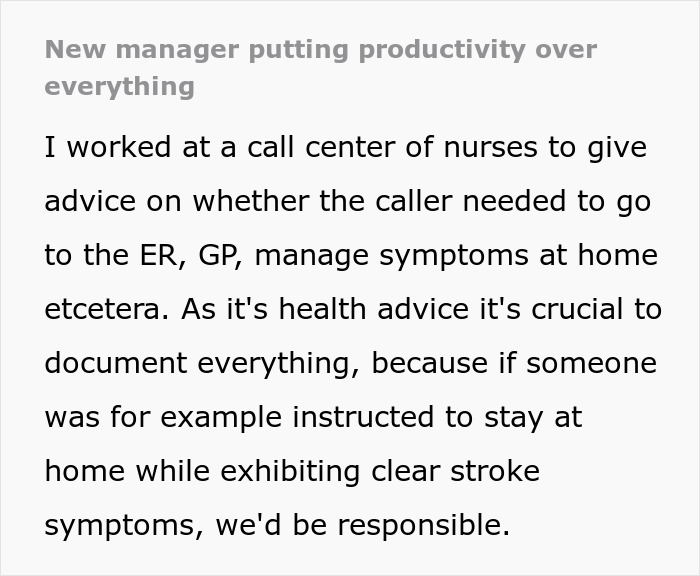
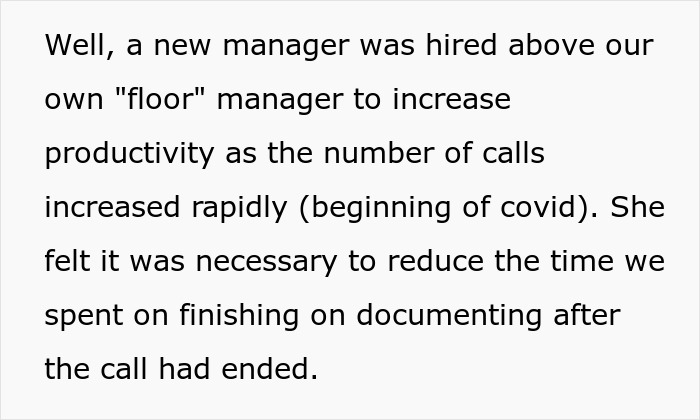


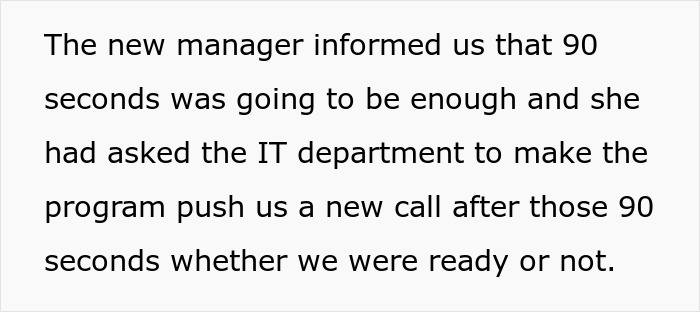

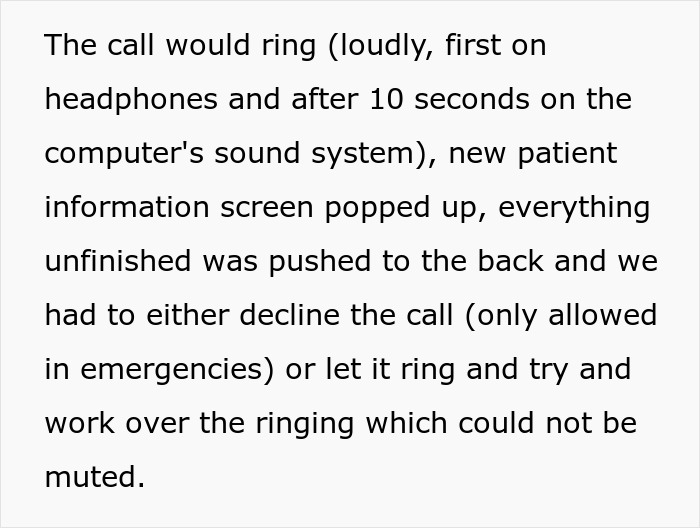
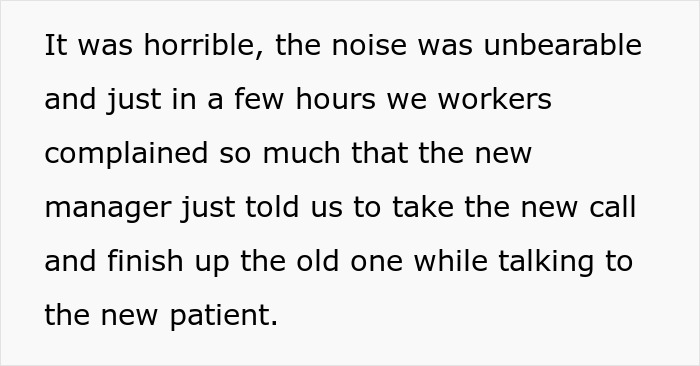

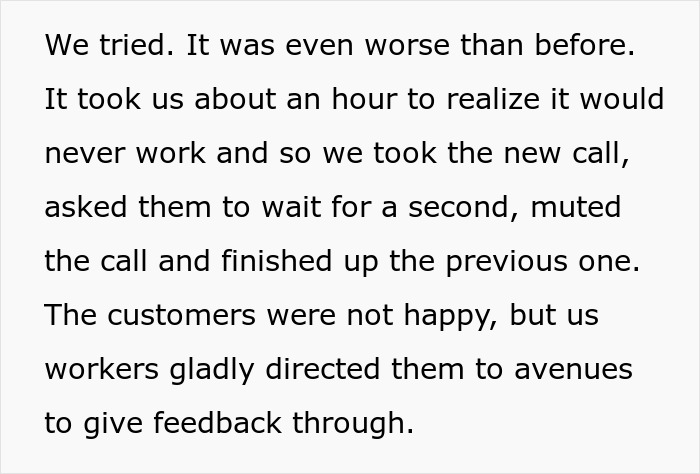
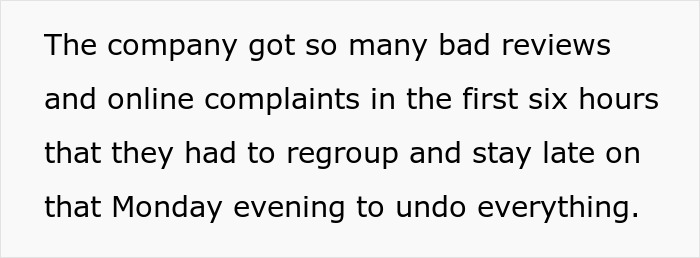

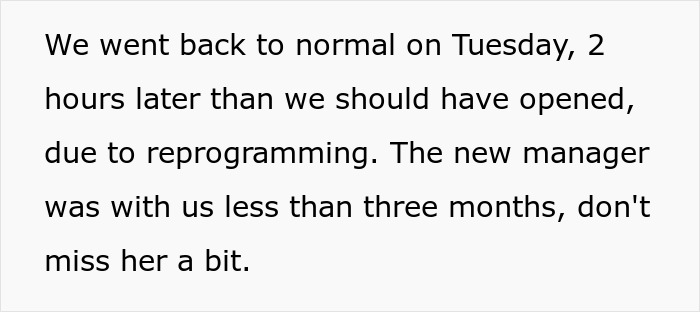




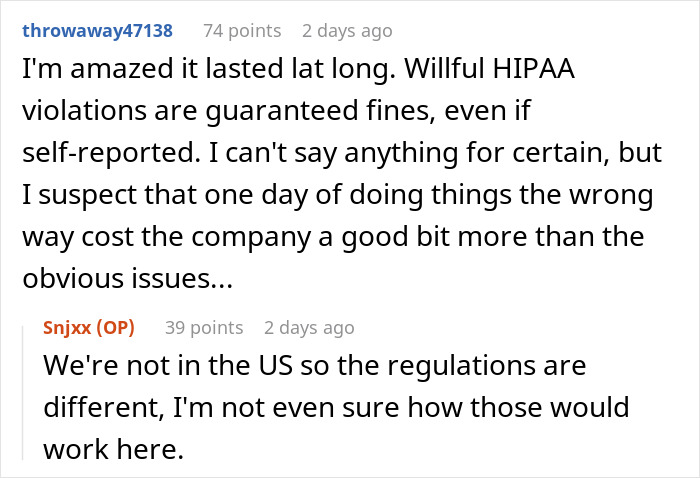


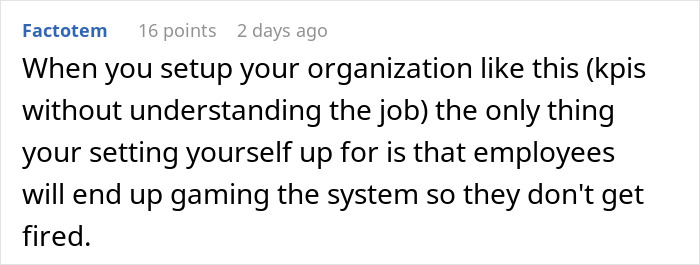

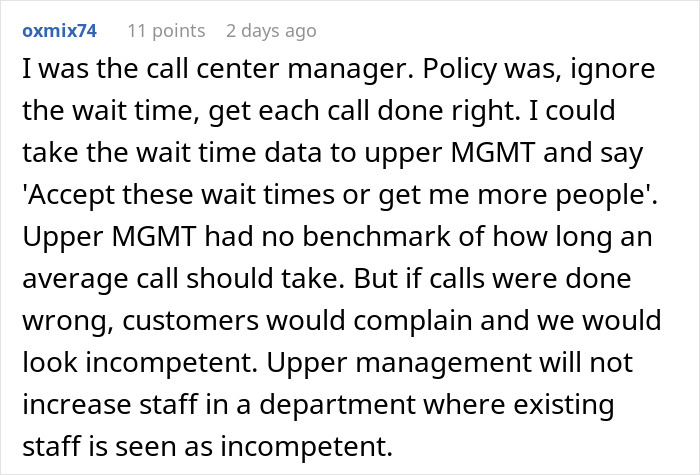






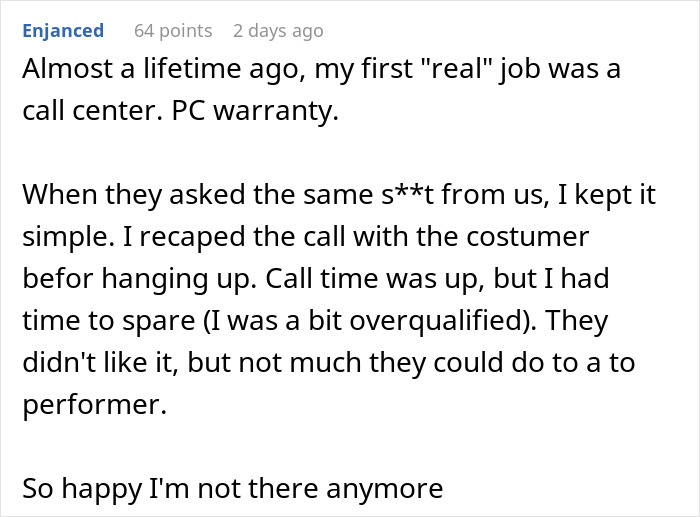












































37
28